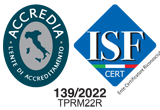
Afcar and the European Commission meet in Brussels
Massimo Brunamonti
The meeting, held at the beginning of March in Brussels, addressed the diagnostic data exchange issue.
Afcar, the Alliance for Freedom of Car Repair in Europe, with Aica as one of its members represented by Egea (European Garage Equipment Association), engaged in an on-going campaign aimed at raising awareness on matters related to free competition in the sector, obtained from the European Commission the opportunity to meet the heads of the five largest institutional bodies involved in the issue. In addition to the obvious satisfaction of seeing the political importance of the sector recognized at the highest levels, the exceptional fact was that the five cabinets were brought together in a single meeting, which allowed room for a concrete and comprehensive debate.
The meeting took place on 8 March in Brussels in the iconic Berlaymont Palace, the headquarters of the European Commission; the EU Commission was represented by Ivo Schmidt of the Energy and Climate Commission, Silke Obst of the Transport Commission, Grzegorz Radziejewski of the Labour Commission, Maximilian Strotmann of the Digital Single Market Commission and Enric Mitjana of the Digital Economy Commission. Afcar, on the other hand, was represented by Sylvia Gotzen from Figiefa, Chris Carroll from Fia, Massimo Brunamonti from Egea and Jan Bambas Afcar Policy Manager and Neil Pattemore as Technical Advisor. Needless to underline the importance, according to the Commission, of the issues on the table; the fact that the key issue, or access to technical data, was immediately dealt with, speaks volumes about the political need for an effective legislative solution, particularly now that all works are about to be handed over to the future Commission, which will become operational after the summer, as soon as the new European Parliament is installed. In this scenario, Afcar was quick in arguing against proposals made by car manufacturers, such as the Extended Vehicle protocol, which not only fall woefully short of the European standards of free and fair competition, the very foundation on the single market, but even fail to prove themselves as fully functional and efficient platforms for the exchange of diagnostic data, to the point that several car manufacturers themselves are now looking at using alternative on-board systems. Afcar, which is now engaged in testing the characteristics of the Extended Vehicle protocol at the request of the Transport Commission, found it quite easy to demonstrate the limitations of this proposal, pointing out that all previously planned tests cannot even start unless the access method, namely the Extended Vehicle, is bypassed.
The interest around the theme and the expertise of each individual representative of the Commission involved was the source of great satisfaction among Afcar members and hearing news on the Commission’s intent to bring important initiatives to a conclusion, such as the so-called Sermi protocol for safe and qualified access to on-board diagnostic ports, helped cement the existing relationship based on mutual cooperation, each with its own expertise and authority, on which the European legislative process is based. We would be happy to write the same about current relations with national governments. In Italy, and it is not the only case as far as we know, communicating with the competent ministries and other institutional bodies, in charge of deciding on issues vital to the sector, is anything but simple. Although dialogue had been open and frank in the past, things have taken a turn for the worst and is now characterized by almost total closure. We do not know the reason for this transformation, but we hope this will soon change for the benefit of the whole community.
The meeting took place on 8 March in Brussels in the iconic Berlaymont Palace, the headquarters of the European Commission; the EU Commission was represented by Ivo Schmidt of the Energy and Climate Commission, Silke Obst of the Transport Commission, Grzegorz Radziejewski of the Labour Commission, Maximilian Strotmann of the Digital Single Market Commission and Enric Mitjana of the Digital Economy Commission. Afcar, on the other hand, was represented by Sylvia Gotzen from Figiefa, Chris Carroll from Fia, Massimo Brunamonti from Egea and Jan Bambas Afcar Policy Manager and Neil Pattemore as Technical Advisor. Needless to underline the importance, according to the Commission, of the issues on the table; the fact that the key issue, or access to technical data, was immediately dealt with, speaks volumes about the political need for an effective legislative solution, particularly now that all works are about to be handed over to the future Commission, which will become operational after the summer, as soon as the new European Parliament is installed. In this scenario, Afcar was quick in arguing against proposals made by car manufacturers, such as the Extended Vehicle protocol, which not only fall woefully short of the European standards of free and fair competition, the very foundation on the single market, but even fail to prove themselves as fully functional and efficient platforms for the exchange of diagnostic data, to the point that several car manufacturers themselves are now looking at using alternative on-board systems. Afcar, which is now engaged in testing the characteristics of the Extended Vehicle protocol at the request of the Transport Commission, found it quite easy to demonstrate the limitations of this proposal, pointing out that all previously planned tests cannot even start unless the access method, namely the Extended Vehicle, is bypassed.
The interest around the theme and the expertise of each individual representative of the Commission involved was the source of great satisfaction among Afcar members and hearing news on the Commission’s intent to bring important initiatives to a conclusion, such as the so-called Sermi protocol for safe and qualified access to on-board diagnostic ports, helped cement the existing relationship based on mutual cooperation, each with its own expertise and authority, on which the European legislative process is based. We would be happy to write the same about current relations with national governments. In Italy, and it is not the only case as far as we know, communicating with the competent ministries and other institutional bodies, in charge of deciding on issues vital to the sector, is anything but simple. Although dialogue had been open and frank in the past, things have taken a turn for the worst and is now characterized by almost total closure. We do not know the reason for this transformation, but we hope this will soon change for the benefit of the whole community.




















